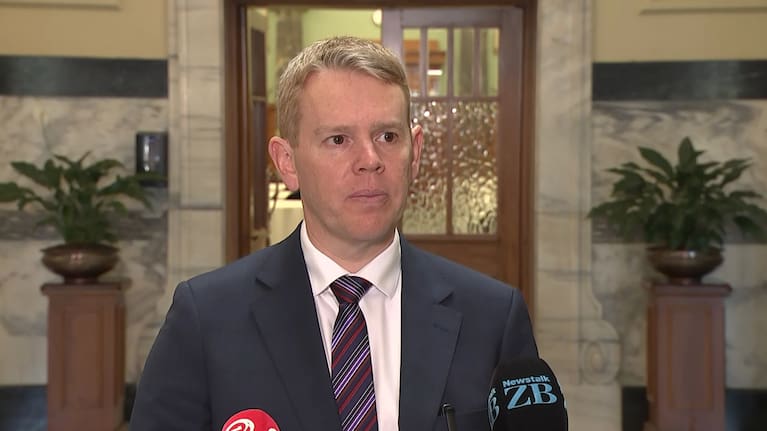Prime Minister Christopher Luxon maintains he has full confidence in Finance Minister Nicola Willis after New Zealand’s GDP fell 0.9% in the June quarter.
The drop, which was larger than some economists had predicted, led to calls for Willis to resign from the finance portfolio.
Among those calling for her to step down were former finance minister Roger Douglas and University of Auckland Matthew Abel chair of macroeconomics Robert MacCulloch. Labour finance spokesperson Barbara Edmonds said the Government’s efforts to tame the economy were “not good enough”.
Speaking to media while at Air New Zealand’s new hangar in Auckland, Luxon was asked if he still had confidence in Willis.
“Absolutely,” he replied.
“Nicola Willis is the best finance minister New Zealand is ever going to have. She’s an outstanding person, she’s an exceptional finance minister and economic growth minister.
“She’s doing an exceptionally good job in a very tough situation, and I totally back her.”
He said that since New Zealand was a small trading nation, it gets “smacked around” in the global economy, and US President Donald Trump’s tariffs had created a “huge loss of confidence” around the world and at home.
“There’s uncertainty, and as a result, businesses don’t invest, and people don’t spend their money.”
Watch: PM grilled after call for finance minister to resign – Watch on TVNZ+
He said the GDP data was historical and expected the economy to grow stronger going into the next quarter.
The PM said he had a conversation with Willis where he told her she had his “full backing”.
Douglas and MacCulloch said yesterday that Willis was “sending New Zealand bankrupt by failing to get to grips with our ballooning fiscal deficits and public debt”.
The GDP has now fallen in three of the last five quarters. (Source: 1News)
“Her own Treasury contradicts her claim that NZ is on a path to surplus. It is not. Treasury’s long-term fiscal forecasts show out-of-control deficits due to pensions and health-care spending from an ageing population,” they said in a statement.
“Willis is not up to the job and is not levelling with the New Zealand public.”
Luxon called those comments “absolute rubbish”.
He pointed out New Zealand’s inflation and interest rates dropping as the economic wins the Government had seen since being elected, as well as the recently secured free trade deal with the UAE.
“We’re cleaning up a hell of a mess, and we’re turning this country around.”

Labour leader Chris Hipkins said the Government was “completely out of touch with the day-to-day reality facing New Zealand families”.
“Christopher Luxon and Nicola Willis are all about blame and excuses rather than solutions. What they’re doing isn’t working. Things are getting worse, and rather than fix that, they’re just trying to find other people to blame.”
Asked what a Labour government would have done differently, Hipkins said: “Well first of all, we wouldn’t have slashed all of the government projects like state house builds, hospital upgrades, school rebuilds, and transport projects, which have had a huge impact on New Zealand’s economy.”
Hipkins stopped short of joining calls for Willis’ resignation, saying the “whole Government needs to go” and that they were “all in this together”.
“Next election, New Zealanders will have the opportunity to get rid of them.”
The prime minister said calls for Nicola Willis’ resignation was “absolute rubbish”. (Source: 1News)
Following the release of yesterday’s numbers, Willis said New Zealand’s economy “had the stuffing knocked out of it” when Trump’s tariffs went into effect.
“The second quarter of the year started the day before United States tariffs were announced.
“The economy had been growing strongly in the previous six months… I feel for people and businesses who have been affected.”
The morning’s headlines in 90 seconds, including Trump slams Kimmel ahead of UK departure, new details on Jorja Miller’s injury, and is chocolate about to get cheaper? (Source: 1News)
Willis said there were signs the economy was growing again as the end of the current quarter approached.
“Lower interest rates are filtering through the economy. There is evidence of increased mortgage lending. And the impact of tariffs has not been as disruptive as initially feared. The outlook for most export sectors remains positive.”

